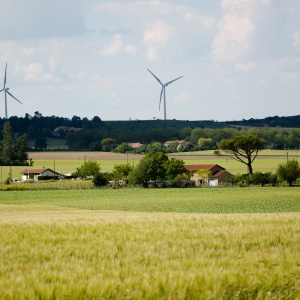
This study presents estimates of how changes in climate might affect the value of European farmland. Based on data for over 41 000 farms, the results suggest that their economic value could drop by up to 32%, depending on the climate scenario considered. The models represent severe, moderate and mild outcomes, respectively. Farms in southern Europe are particularly sensitive to climate change and could suffer value losses of up to 9% per 1 °C rise.
The paper used farm-level data rather than crop models (which normally describe how climate affects specific crops, but omit impacts on livestock and underestimate the ability of farmers to adapt). The researchers matched climate, soil, geography and regional socio-economic variables with the farm-level data using a statistical method that estimates the relationship between the value of agricultural land and climate. The method considers the productivity of land (its annual net revenue) and accounts for the direct effect of climate on crops and how climate affects the choices of farmers (such as which crop or livestock to farm).
The researchers also accounted for the effect of policy, which could exacerbate climate sensitivities if, for example, subsidies are higher for farms in favourable climates. The analysis therefore controls for subsidies at the farm level and removes the influence of country-level policies.
Overall, farms that are warmer in the autumn and spring, and cooler in the summer and winter, tend to have higher values. This is because a colder winter limits pests and a warmer spring/autumn lengthens the growing season. A warmer summer places adverse stress on crops. The researchers say that policy on water and land use, for example, will be crucial to help farmers adapt to climate change and mitigate economic losses.
Reference
Van Passel, S., Massetti, E. & Mendelsohn, R. (2016). A Ricardian Analysis of the Impact of Climate Change on European Agriculture. Environmental and Resource Economics. DOI 10.1007/s10640-016-0001-y
You can read the full paper here and an article discussing the research by European Commission DG service "Science for Environment Policy" here.







Post a new comment »